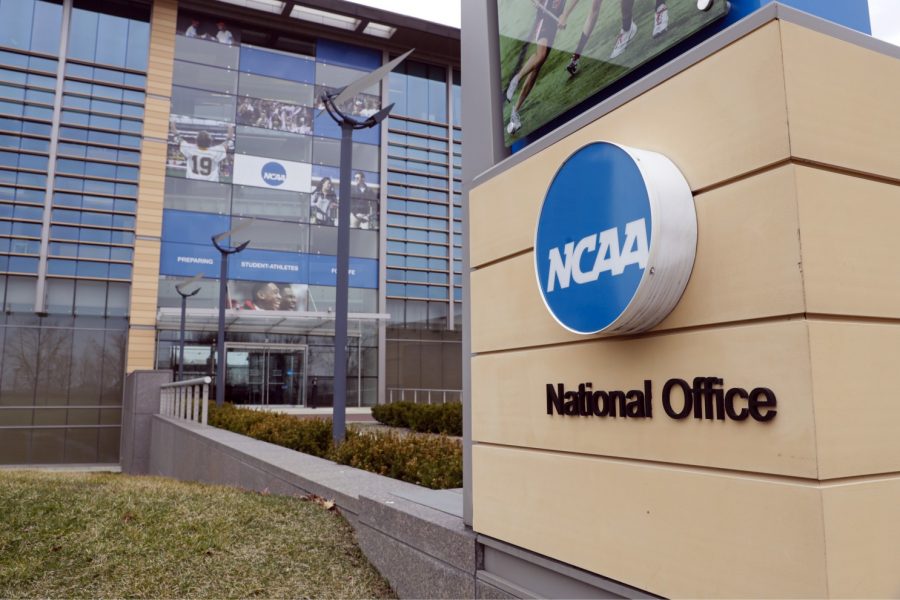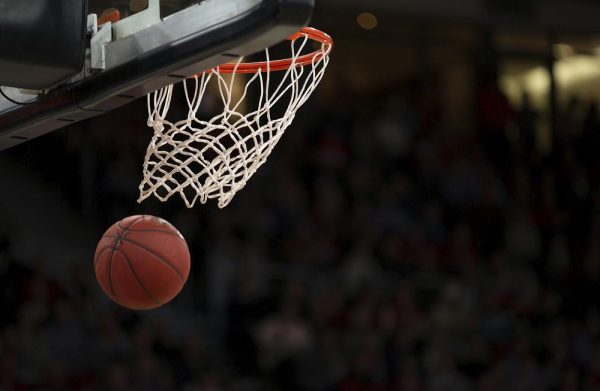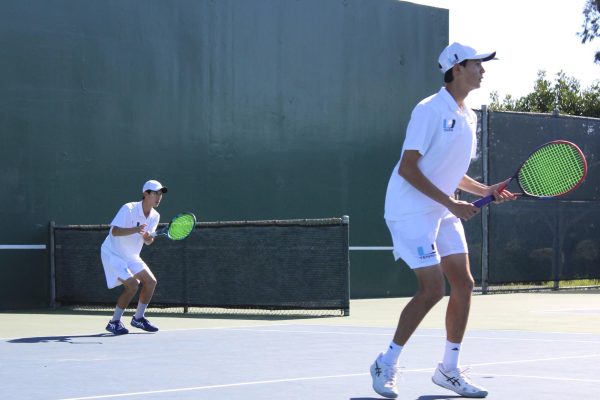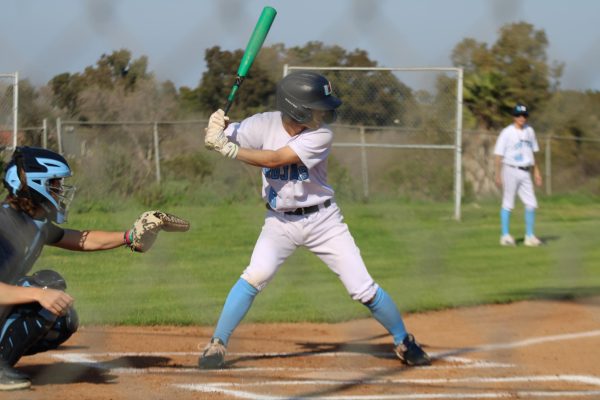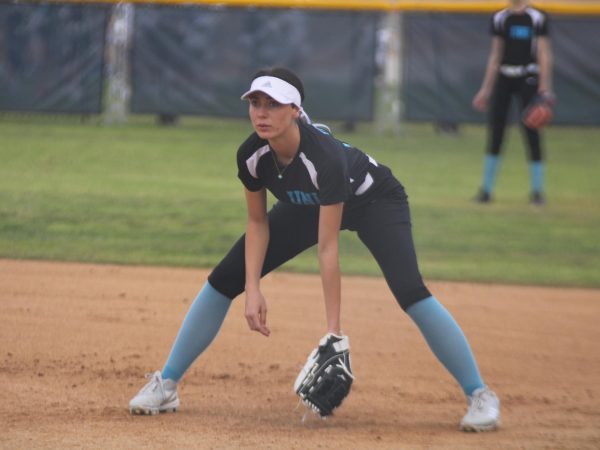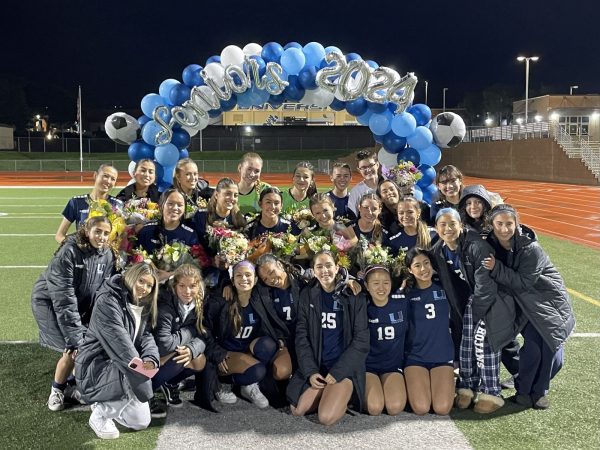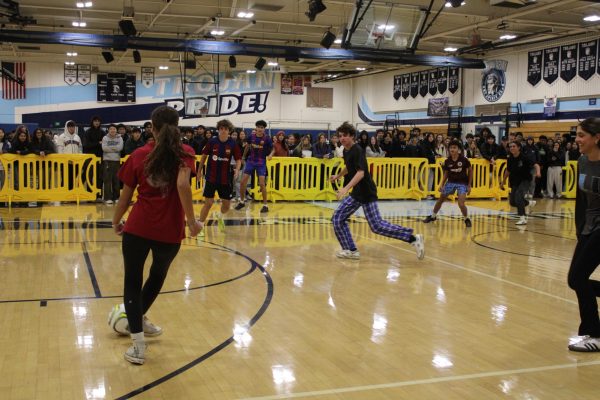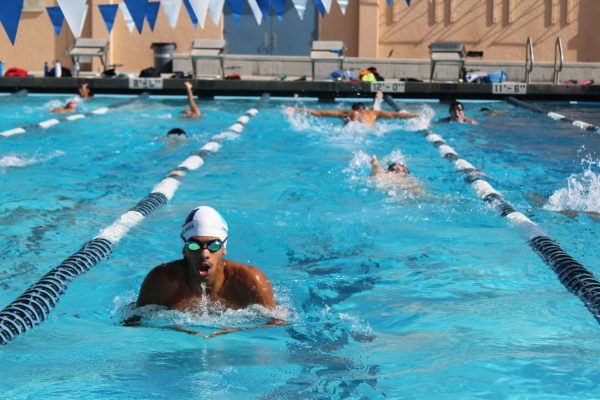A revolution in NCAA policy
December 19, 2020
It has been a long-standing tradition of college sports that college athletes should not be paid. For decades, college athletes, school officials, and the public have questioned the existing system of student-athlete endorsements and salaries. California Governor Gavin Newsom officially challenged this standard in September by signing a bill that allows college players to sign endorsement deals.
The new law allows players to hire agents and agree to endorsements and will take effect in 2023. Governor Newsom’s bill will enable thousands of college athletes in California to promote companies’ products and profit from their likeness. This law directly challenges the current standing set by the National Collegiate Athletic Associations (NCAA), which states that athletes receive subsidized/covered university tuition as compensation for sports participation, instead of through salaries or advertisements. Newsom’s measure is the first of its kind and has received extensive support as well as criticism.
In an interview with the New York Times, Governor Newsom expressed the law as, “a big move to expose the farce and to challenge a system that is outsized in its capacity to push back.”
As a nonprofit organization, the NCAA is responsible for administering all college sports. According to The Economist, the organization has made about 1 billion dollars in revenue within the last three years. The majority of these funds are spent through investments in schools that are NCAA members. Sports programs, administrators, coaches, and student-athletes scholarships are paid for by the NCAA. As it stands, athletes are not allowed to be paid for endorsements, sponsorships, the use of their likeness and are compensated with paid tuition and food stipend. The law that Governor Newsom passed in California goes against the NCAA by allowing students to be paid for endorsements.
The law has received mixed reactions from the NCAA, professional basketball players, and college sports fans. Those favoring the law claim athletes have been cheated from deserved compensation. Even though the tuition is paid for by the NCAA, if players were born in proportion to the revenue they generate for their colleges, it would be fairer. For example, according to The Economist, the top 16 percent of basketball players would be paid between $250,000 and $400,000 a year. Additionally, according to Business Insider, 75% of the top universities make upwards of $20 million in Nike and Adidas’ sponsorships for player likeness. However, the athletes themselves receive no compensation.
Many critics of the NCAA have called the organization’s treatments of college athletes exploitive since the organization and participating universities make millions in revenue. These critics argue that exploitation is especially a cause of concern because many student-athletes come from lower socioeconomic backgrounds. A comprehensive 2013 study by the National College Players Association found that 86 percent of college athletes live below the poverty line. Additionally, according to Business Insider, much student-athletes practice upwards of 30 hours per week. Between school and sports, most of these athletes also do not have time to get a job.
“I was one of those underprivileged kids. I was fortunate enough and talented enough to skip college.” Los Angeles Lakers forward LeBron James stated on his talk show, The Shop: Uninterrupted. “ I understand what those kids are going through. I feel for those kids. That’s why it was personal to me. … It’s the NCAA’s turn to step up.”
The legislation passed by Governor Newsome has also received a lot of opposition. The NCAA has called the law “unconstitutional,” and many college sports fans have claimed that athlete salaries will corrupt college sports spirit. They argue that a winner takes all dynamic would be introduced, where top universities and athletes from popular sports would be paid substantially from sponsorships. On the other hand, smaller programs and other sports would be ignored. Additionally, the NCAA argues only a fraction of college athletes enter professional leagues, so the primary purpose of going to college should be for education. Endorsements would stray away from the original intent of college.
The NCAA made their long-standing philosophy that student-athletes should be compensated with a degree, rather than money, in a response letter to Governor Newsom.
In this letter, they said that “The NCAA has consistently stood by its belief that student-athletes are students first, and they should not be employees of the university.”
Furthermore, California’s law is also highly debated because athletic salaries would remove the distinction between college sports and professional athletes.
“The NCAA has given us a great opportunity to play football,” Micheal Pittman Jr., a former USC wide receiver, said in an interview. “I think it would be great for players to get paid…I’m just going to keep playing every week until I reach that level that pays me.”
The NCAA considered legally challenging California’s law, basing their argument on the constitutional provision that grants Congress the authority to oversee interstate commerce. Past legal battles have allowed the NCAA’s business model to stand with limited modifications because the organization has been classified as interstate commerce. The NCAA also threatened to disband the state of California from its organization. Still, Gavin Newsom and other bill supporters argue that the NCAA could not afford to lose California universities because of their popularity among fans.
In a significant change in college sports philosophy, NCAA’s governing members have expressed support for a policy change to allow athletes to receive compensation from their likeness from third-party endorsements; however, students-athletes still cannot be paid directly by their universities.
Although Governor Newsom’s law received a lot of criticism and opposition, it inspired a national movement to allow college athletes to be paid. Even though it is not set in stone yet, the NCAA’s new policies are expected to become operative at the start of the 2020-21 school year.
Image Courtesy of The Los Angeles Times


